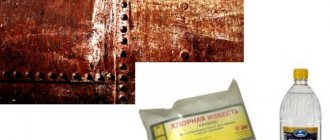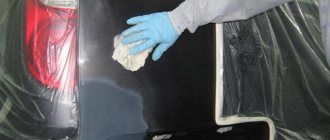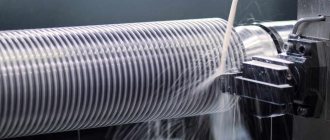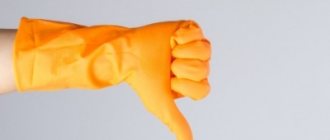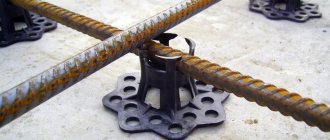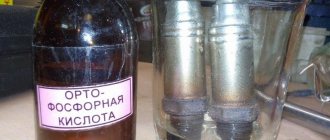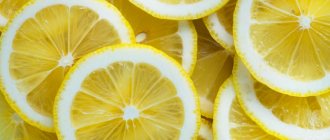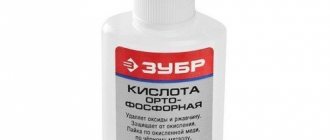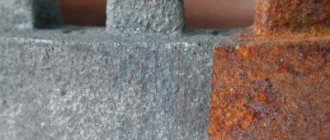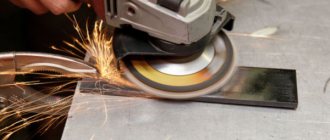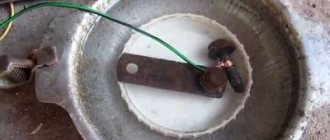Red traces of rust will not be a problem if you approach the issue of removing them in a timely and competent manner.
There are a sufficient number of folk and professional remedies, among which one can highlight one that is most effective for removing rust and safe for human health - citric acid.
This is a tool accessible to everyone that allows you to quickly get rid of rust stains from almost any surface.
Will lemon juice help against corrosion?
The product of the corrosion process, rust, gradually penetrates the metal structure, destroying it.
Not only can you remove red stains, but you can also temporarily stop the oxidation process by cleaning with citric acid. It interacts with the formed iron oxides and neutralizes oxidation reactions.
"Limonnka" is an effective means of removing rust stains from:
- metal,
- glass,
- ceramic surfaces,
- clothes.
Most often, an acidic solution is used in cleaning:
- car body,
- plumbing in the house,
- old coins.
The only point worth remembering when choosing citric acid to remove rust stains: an acidic solution is effective only if used in a timely manner (as soon as the stain appears).
Citric acid may be powerless against old, stubborn stains.
Anti-corrosion agents
Another radical way to get rid of traces of oxidation is the use of special anti-corrosion agents. The chemical solution interacts with the iron oxide, dissolving it in a matter of minutes. At the same time, the product forms a protective film that prevents the reappearance of rust. There are 2 types of anti-corrosion agents:
- Acidic. Such products are applied only to areas of corrosion, since the acid corrodes undamaged metal. Some acids that are included in the products are toxic.
- Neutral. More expensive, but effective and safe products that remove dense rust, but do not destroy clean areas of metal.
You can remove rust like this:
- Clean the metal surface from dirt and loose layers with sandpaper or a metal brush.
- Treat the rusty surface with a degreaser.
- Apply one coat of anti-corrosion agent using a brush or spray.
- Let sit until dry (about 30 minutes). Then clean off the rust with a piece of dry cloth.
- Apply a second coat of anti-corrosion agent.
After drying (2–4 hours), the metal is ready for painting.
Rubber gloves and respirators protect when working with acids: Pexels
Pros and cons of cleaning
In comparison with other methods and means of rust removal, citric acid has a number of positive properties:
- Maximum availability of the product (citric acid is available in every kitchen; if necessary, you can simply buy it at the grocery store).
- After cleaning is completed, the acidic solution can be disposed of down the drain (thus providing additional cleaning of the pipes).
- Unlike professional chemical rust removers, the cost of a bag of citric acid is low and affordable to everyone.
- When in contact with a painted surface, the acidic solution does not violate its integrity.
- If desired, you can always stop the cleaning process (just move the item with rust from the acidic solution to soda water).
- During the heating process, they will not emit toxic fumes that are hazardous to human health and the environment.
Disadvantages of using citric acid:
For very strong, old rust stains, it is ineffective (requires repeating the cleaning process).- A high concentration acidic solution can cause loss of color and even the integrity of the treated surface.
- After cleaning with citric acid, the remaining product must be thoroughly removed with a clean sponge or cloth.
- If a product with rust stains has rubber inserts or seals, then citric acid can destroy them during the reading process.
Despite all the positive properties of citric acid, it is best to carry out work on removing rust stains while wearing protective glasses and gloves. The thing is that when scraped, small particles of rusty plaque scatter in all directions and can injure the mucous membranes and skin.
What is the use of citric acid in the fight against rust?
Citric acid not only helps in cooking, but is also successfully used as a reliable and effective cleaning agent.
It has a lot of advantages, so you simply can’t do without it in everyday life:
- It qualitatively cleans all types of metal surfaces, eliminating traces of rust.
- Does not destroy the paint or varnish layer.
- Does not pollute the environment.
- It is used economically.
- It is much cheaper than ready-made products purchased in the store.
Citric acid removes rust even on embossed products. Citric acid removes traces of corrosion even in the most difficult to reach places. This is especially important if the product has a complex design or there is a danger of breaking fragile parts. Mechanical processing cannot get rid of rust as effectively.
How I found my ideal hair growth product
Hello dear! I want to share with you my solution to the sensitive problem of hair loss . The problems are very serious, at least for me. I would never have thought that this misfortune would touch me, especially at the age of 29 (read more...)
Traces must be removed as soon as they are discovered. In the initial stages of damage, home remedies like citric acid are most effective. If the process has gone too far, you will have to use more aggressive compounds.
After using lemon juice, simply pour the used solution into the sink and rinse with a small amount of running water. This will also help clean the pipes from greasy deposits and lime deposits.
Safety regulations
Citric acid affects the body in different ways, so you need to be careful with its use. In dry form and in a concentrated solution, if it gets into the eyes or skin, the composition can cause severe irritation or a serious chemical burn.
It is most dangerous to health if the substance is ingested in large quantities. If such symptoms appear, you should immediately contact a medical facility:
Also, do not inhale citric acid - this can damage the respiratory tract.
You need to store the powder in a safe place and take precautions when working with it.
How to remove rusty deposits?
Working with citric acid is quite simple. To achieve the maximum effect of removing rusty stains, you must adhere to a certain algorithm of actions:
- pour citric acid powder into a container with warm water (80 grams of dry ingredient is enough for 100 ml of liquid);
- the product with rust is dipped into the prepared solution and left for two hours (after only five minutes you can see small bubbles on the surface, indicating the beginning of the necessary reaction);
- Afterwards, the already cleaned product is removed from the solution and washed thoroughly under clean running water; if necessary, rusty stains can be cleaned with a brush.
After cleaning, the wet surface must be thoroughly wiped dry with a paper towel or clean rag.
What else can you add to enhance the effect?
You can speed up the process of cleaning the surface from rusty deposits by adding hydrogen peroxide and salt to citric acid.
Algorithm of actions:
- In a clean container, mix citric acid (50 g), hydrogen peroxide (100 ml) and table salt (1 tbsp).
- The resulting mixture is applied to the rust stain and left for fifty to sixty minutes.
- Afterwards, wipe the product with a clean cloth, removing rusty deposits along with any remaining cleaning agent.
Using this product may slightly change the color of the metal surface to a darker one.
Remove rust from metal using vinegar
It doesn’t matter what the taste and color of vinegar is: apple, rice, wine... The main component in it is important - acid, which, in tandem with esters, aldehydes and other organic compounds, can eat away even the devil’s baldness. But this only applies to natural vinegar.
Synthetic vinegar is also an aggressive product that disinfects, kills harmful bacteria on metal, and also quickly eats away rust. Synthetic, which is sold as food grade (read the composition), is a petroleum product: oil ↔️ butane gas ↔️ liquid methanol ↔️ catalytic reaction with carbon monoxide CO ↔️ acetic acid. In its pure form it looks like dry ice. It freezes at a temperature of +18 degrees and all that remains is to dilute it with ordinary water in a concentration of 6 to 70%.
How to remove rust in two steps.
- Instruments must be completely immersed in a small container with undiluted 9% vinegar for 24 hours. Remove (using rubber gloves) and rinse under running water.
- Lubricate an object with a large area of damage generously with vinegar, leave for a while to soften the plaque, and then brush over the metal.
Tip : Use only white vinegar, as other types may leave stubborn stains on the item.
The cleaned surface quickly oxidizes, so it is necessary to protect it from oxygen - cover it with lubricant or paint.
Read: Preparing your car for winter: 7 reminders for the driver
Removal Tips
Several recommendations will facilitate and speed up the process of cleaning various surfaces from rust with citric acid:
- Before treating a rust stain with an acidic solution, the surface must be degreased (for example, wiped with a sponge moistened with liquid detergent).
- A heated solution of citric acid (40 grams of dry powder per 250 ml) will help remove rust stains from fabric. It is enough to dip the stain in the heated solution for five minutes, then wash the product a second time.
- Do not exceed the recommended exposure time of the acidic solution (maximum forty-eight hours) on the rusty surface. Otherwise, the product will become covered with a white coating, which is almost impossible to get rid of.
Baking soda will help stop the aggressive effects of citric acid. It is enough to dilute two or three tablespoons of dry baking soda powder in a bucket of water and dip the rust-free product into the resulting liquid.
Remove rust from metal using baking soda
An effective method for removing rust from lightly corroded products. A little patience and effort, and the result is impressive:
- Combine baking soda (sodium bicarbonate) with water to obtain a thick mixture;
- apply to the affected surface and leave for 30 minutes;
- Using aluminum foil or a brush, thoroughly clean the resulting mass.
Important : after such cleaning, the integrity of the surface structure of the metal is damaged, which is not restored. After cleaning, you need to apply protective agents. The sealant will block the access of water and air to the metal and stop the further spread of rust.
The second option involves removing complex rust spots. For example, in a car. It is easy to use and does not harm the metal, but takes more time and attention.
- In a small container with water, you need to dilute the soda concentrate and stir until completely dissolved.
- Connect one end of the wire to the “+” of the car battery (“-” do not disconnect).
- At the second end of the wire, attach a stainless steel rod 10 cm long, the edge of which must be wrapped with fabric and secured with thread.
- Place a 55 W light bulb in the wire gap, in case of a short circuit the light bulb will light up, the battery will not deteriorate.
- Moisten the prepared rod with the edge of the cloth in a soda solution and treat the surface damaged by rust.
The result will be perfectly cleaned rust from the metal without scratches. You can forget about corrosion for many years. This is a worthy result.
Note: How to choose a generator: 7 parameters
Paintwork
This method of combating corrosion is very common and is considered one of the most reliable. Such products are very cheap and have a simple application technology.
Paint and varnish coatings also guarantee the product a beautiful appearance. It can be applied at home or in a workshop.
This method of corrosion protection is accessible to most people.
All proposed methods for removing rust from metal surfaces should be used strictly according to the instructions. It is not recommended to increase their exposure time, since any substance can damage the metal.
